Just to Prove a Point
 Monday, October 29, 2012 at 4:00AM
Monday, October 29, 2012 at 4:00AM  General Curtis LeMay was a controversial general who served during WWII and was important in the Cold War period as well. His life is an interesting read. I was too young to vote for him in 1968 when he was the American Independent Party vice-presidential running mate of George Wallace. But I did vote for that party in 1972 in my first election—voting for either Nixon or McGovern filled me with horror. (LeMay was not a candidate for that election.)
General Curtis LeMay was a controversial general who served during WWII and was important in the Cold War period as well. His life is an interesting read. I was too young to vote for him in 1968 when he was the American Independent Party vice-presidential running mate of George Wallace. But I did vote for that party in 1972 in my first election—voting for either Nixon or McGovern filled me with horror. (LeMay was not a candidate for that election.)
But LeMay should have filled me with horror.
LeMay commanded subsequent B-29 Superfortress combat operations against Japan, including massive incendiary attacks on 64 Japanese cities. This included the fire-bombing of Tokyo on March 9–10, 1945, the most destructive bombing raid of the war. For this first attack, LeMay ordered the defensive guns removed from 325 B-29s, loaded each plane with Model E-46 incendiary clusters, magnesium bombs, white phosphorus bombs, and napalm, and ordered the bombers to fly in streams at 5,000 to 9,000 feet over Tokyo.
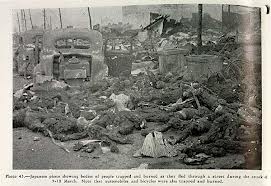 The first pathfinder airplanes arrived over Tokyo just after midnight on March 10. Following British bombing practice, they marked the target area with a flaming “X.” In a three-hour period, the main bombing force dropped 1,665 tons of incendiary bombs, killing some 100,000 civilians, destroying 250,000 buildings and incinerating 16 square miles (41 km2) of the city. Aircrews at the tail end of the bomber stream reported that the stench of burned human flesh permeated the aircraft over the target.
The first pathfinder airplanes arrived over Tokyo just after midnight on March 10. Following British bombing practice, they marked the target area with a flaming “X.” In a three-hour period, the main bombing force dropped 1,665 tons of incendiary bombs, killing some 100,000 civilians, destroying 250,000 buildings and incinerating 16 square miles (41 km2) of the city. Aircrews at the tail end of the bomber stream reported that the stench of burned human flesh permeated the aircraft over the target.
Lemay was well known for his rather colorful statements over the years. Here are some of them from Brainy Quote:
Killing Japanese didn’t bother me very much at that time... I suppose if I had lost the war, I would have been tried as a war criminal.
We should bomb Vietnam back into the stone age.
Every soldier thinks something of the moral aspects of what he is doing. But all war is immoral and if you let that bother you, you’re not a good soldier.
Not exactly what you would call a man of peace.
So you would expect that he was in favor of the bombs dropped on Hiroshima and Nagasaki to save millions of American lives.
The war would have been over in two weeks. . . . The atomic bomb had nothing to do with the end of the war at all.
As for what the bomb was for, you will have to continue reading.
General Douglas MacArthur was the head of the Pacific front. What was his position?
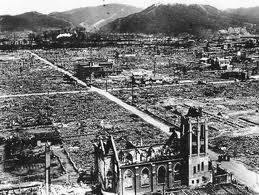 MacArthur’s views about the decision to drop the atomic bomb on Hiroshima and Nagasaki were starkly different from what the general public supposed …. When I asked General MacArthur about the decision to drop the bomb, I was surprised to learn he had not even been consulted. What, I asked, would his advice have been? He replied that he saw no military justification for the dropping of the bomb. The war might have ended weeks earlier, he said, if the United States had agreed, as it later did anyway, to the retention of the institution of the emperor. Norman Cousins Pathology of Power pg 56, 70-71.
MacArthur’s views about the decision to drop the atomic bomb on Hiroshima and Nagasaki were starkly different from what the general public supposed …. When I asked General MacArthur about the decision to drop the bomb, I was surprised to learn he had not even been consulted. What, I asked, would his advice have been? He replied that he saw no military justification for the dropping of the bomb. The war might have ended weeks earlier, he said, if the United States had agreed, as it later did anyway, to the retention of the institution of the emperor. Norman Cousins Pathology of Power pg 56, 70-71.
(Note that all these quotes are from the Washington Blog’s much longer article on this subject. I highly recommend it. The number of generals, scientists (including Einstein) and members of the government that opposed the use of nuclear weapons was large.)
My guess is that MacArthur was well known enough that what he thought would have been already known to the “powers that be.”
The military head of the war in Europe was future president Dwight Eisenhower. He stated this is his memoirs, page 380.
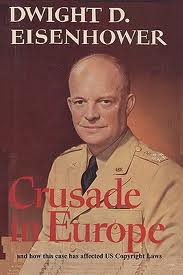 In [July] 1945… Secretary of War Stimson, visiting my headquarters in Germany, informed me that our government was preparing to drop an atomic bomb on Japan. I was one of those who felt that there were a number of cogent reasons to question the wisdom of such an act. …the Secretary, upon giving me the news of the successful bomb test in New Mexico, and of the plan for using it, asked for my reaction, apparently expecting a vigorous assent.
In [July] 1945… Secretary of War Stimson, visiting my headquarters in Germany, informed me that our government was preparing to drop an atomic bomb on Japan. I was one of those who felt that there were a number of cogent reasons to question the wisdom of such an act. …the Secretary, upon giving me the news of the successful bomb test in New Mexico, and of the plan for using it, asked for my reaction, apparently expecting a vigorous assent.
During his recitation of the relevant facts, I had been conscious of a feeling of depression and so I voiced to him my grave misgivings, first on the basis of my belief that Japan was already defeated and that dropping the bomb was completely unnecessary, and secondly because I thought that our country should avoid shocking world opinion by the use of a weapon whose employment was, I thought, no longer mandatory as a measure to save American lives. It was my belief that Japan was, at that very moment, seeking some way to surrender with a minimum loss of ‘face’. The Secretary was deeply perturbed by my attitude….
Why then was the bomb dropped on two cities that had never been bombed because they lacked military targets of any importance? History.com tells us.
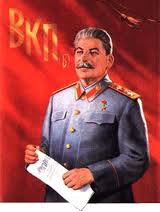 In the years since the two atomic bombs were dropped on Japan, a number of historians have suggested that the weapons had a two-pronged objective …. It has been suggested that the second objective was to demonstrate the new weapon of mass destruction to the Soviet Union. By August 1945, relations between the Soviet Union and the United States had deteriorated badly. The Potsdam Conference between U.S. President Harry S. Truman, Russian leader Joseph Stalin, and Winston Churchill (before being replaced by Clement Attlee) ended just four days before the bombing of Hiroshima. The meeting was marked by recriminations and suspicion between the Americans and Soviets. Russian armies were occupying most of Eastern Europe. Truman and many of his advisers hoped that the U.S. atomic monopoly might offer diplomatic leverage with the Soviets. In this fashion, the dropping of the atomic bomb on Japan can be seen as the first shot of the Cold War.
In the years since the two atomic bombs were dropped on Japan, a number of historians have suggested that the weapons had a two-pronged objective …. It has been suggested that the second objective was to demonstrate the new weapon of mass destruction to the Soviet Union. By August 1945, relations between the Soviet Union and the United States had deteriorated badly. The Potsdam Conference between U.S. President Harry S. Truman, Russian leader Joseph Stalin, and Winston Churchill (before being replaced by Clement Attlee) ended just four days before the bombing of Hiroshima. The meeting was marked by recriminations and suspicion between the Americans and Soviets. Russian armies were occupying most of Eastern Europe. Truman and many of his advisers hoped that the U.S. atomic monopoly might offer diplomatic leverage with the Soviets. In this fashion, the dropping of the atomic bomb on Japan can be seen as the first shot of the Cold War.
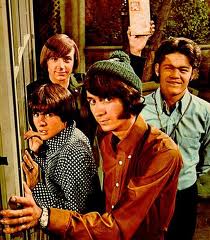 If you wonder why I think that America is headed down the wrong path, and has for generations, think on these bombs.
If you wonder why I think that America is headed down the wrong path, and has for generations, think on these bombs.
Over 200,000 were killed, just to prove a point.
In order to keep my reputation for whimsy here is a short scene from the first direct-to-video music/comedy show, Michael Nesmith’s (yes, he of Monkees fame) Elephant Parts. I actually have this DVD. I used to think the meme, “just to prove a point,” was funny. I am not laughing now.
 War
War 












